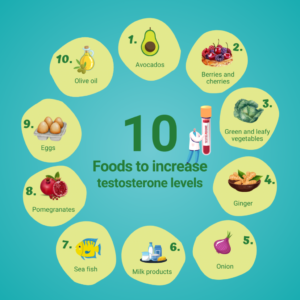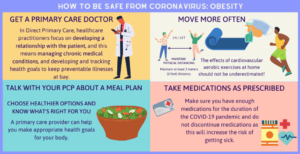How to increase testosterone level

5 WAYS…..(how to increase testosterone level)
There’s more to low testosterone than a sluggish sex drive.
How to increase testosterone level.
Sure, it’s one of the more frustrating symptoms. But it’s not the only reason you might be looking to boost your testosterone levels.
Low testosterone (or Low T) is also associated with:
- Erectile dysfunction
- Fatigue
- Reduced muscle mass
- Increased body fat
- Feeling irritable, or even depressed
- Changes in sleep habits
“It’s completely natural for testosterone levels to decrease over time. In fact, almost half of men over the age of 80 have low testosterone. But younger men can be troubled with symptoms of low testosterone, too — especially those who are overweight or have certain underlying health conditions, like diabetes and sleep apnea,” says Dr. Nathan Starke, urologist specializing in men’s health at Houston Methodist.
And while there are treatments for low testosterone, many men prefer to start by making the healthy lifestyle changes that can naturally improve their testosterone levels.
If you’re looking for all-natural ways to boost your testosterone levels, Dr. Starke offers the following tips:
(how to increase testosterone level)
1. Improve your diet

Healthy eating: group of fresh multicolored foods to help lower cholesterol levels and for heart care shot on wooden table. The composition includes oily fish like salmon. Beans like Pinto beans and brown lentils. Vegetables like garlic, avocado, broccoli, eggplant and tomatoes.
Fruits like apple, grape, orange and berries. Nuts like almonds and walnuts. Soy products like tofu and soybeans. Cereals and seeds like chia seeds, flax seeds, oatmeal and barley. Olive oil, dark chocolate and yogurt with added sterols and stanols.
High resolution 42Mp studio digital capture taken with SONY A7rII and Zeiss Batis 40mm F2.0 CF lens Improving your diet to increase testosterone levels involves making smart food choices that support hormonal balance.
Focus on a diet rich in essential nutrients like zinc, vitamin D, and healthy fats. How to increase testosterone level Incorporate foods like lean meats, nuts, seeds, and green leafy vegetables, which provide these crucial elements.
Protein intake is essential for muscle development and hormonal regulation, so consume adequate lean proteins like chicken, fish, and tofu. Opt for complex carbohydrates like whole grains to maintain steady energy levels, which can indirectly support testosterone production.
Additionally, reduce or eliminate processed sugars and refined carbs to help lower insulin levels, as high insulin can negatively impact testosterone. Lastly, stay hydrated and aim for a balanced, varied diet to ensure you’re getting all the vitamins and minerals necessary for healthy testosterone levels.
A well-rounded, nutrient-dense diet, coupled with regular exercise and sufficient sleep, can contribute to increased testosterone levels and overall well-being.
By making these dietary and lifestyle adjustments, you can naturally support and potentially increase your testosterone levels over time. It’s essential to consult with a healthcare professional before making significant changes to your diet, especially if you have specific health concerns or conditions. How to increase testosterone level.
2. Mix cardio with strength training, and vice versa

Combining cardio and strength training in your fitness routine is an excellent way to achieve a well-rounded and effective workout. This approach, often referred to as “cross-training,” offers numerous benefits. How to increase testosterone level By alternating between the two, you can enhance your overall fitness, burn calories, and build muscle more efficiently for increasing testosterone level.
Cardiovascular exercises, like running, cycling, or swimming, improve cardiovascular health, boost endurance, and aid in burning calories for weight management. Meanwhile, strength training, which involves resistance exercises such as lifting weights or bodyweight exercises, helps build muscle, improve bone density, and increase metabolism. How to increase testosterone level.
Integrating both cardio and strength training into your routine prevents monotony and reduces the risk of overuse injuries associated with repetitive activities. It also promotes a balanced physique and helps you achieve a broad range of fitness goals, from weight loss to muscle gain. How to increase testosterone level.
Consider alternating between cardio and strength workouts throughout the week, and, if possible, engage in some workouts that combine elements of both, like circuit training or high-intensity interval training (HIIT). This approach ensures you get the best of both worlds and keeps your workouts exciting and challenging.
3. Get plenty of sleep (How to increase testosterone level)

Getting plenty of sleep is essential for maintaining optimal physical and mental health. Quality sleep, typically around 7-9 hours per night for adults, plays a vital role in various aspects of well-being:
1. Restoration: Sleep is a restorative process that allows your body to repair tissues, regenerate cells, and recover from daily wear and tear. It’s especially crucial for muscle recovery and immune system function.
2. Cognitive Function: Adequate sleep supports cognitive functions like memory consolidation, problem-solving, and creativity. It helps you stay focused and alert during the day.
3. Emotional Well-being: Sleep is closely linked to mood regulation. Insufficient sleep can lead to increased irritability, anxiety, and depression.
4. Physical Health: Chronic sleep deprivation is associated with an increased risk of various health issues, including obesity, diabetes, cardiovascular diseases, and a weakened immune system.
5. Hormone Balance: Sleep is critical for maintaining hormonal balance, including the regulation of stress hormones and sex hormones.
To improve your sleep, establish a regular sleep schedule, create a comfortable sleep environment, limit caffeine and screen time before bed, and practice relaxation techniques like meditation or deep breathing. Prioritizing sleep is a simple yet powerful way to enhance your overall well-being and quality of life. How to increase testosterone level
4. Take steps to reduce stress (how to increase testosterone level)

Reducing stress is crucial for maintaining both physical and mental well-being. Chronic stress can have detrimental effects on your health, from contributing to heart disease and obesity to impacting your emotional state. Here are steps you can take to reduce stress and follow the these steps for how to increase testosterone level.
(how to increase testosterone level)
- Identify Stressors: Recognize the sources of your stress, whether they are work-related, personal, or environmental. Understanding the causes is the first step in managing stress effectively.
- Time Management: Organize your tasks and priorities, setting realistic goals and deadlines. Effective time management can reduce the feeling of being overwhelmed.
- Exercise Regularly: Physical activity releases endorphins, which are natural stress relievers. Incorporate regular exercise into your routine to reduce tension and anxiety.
- Relaxation Techniques: Practice relaxation methods such as deep breathing, meditation, or yoga. These techniques can help calm your mind and reduce stress levels.
- Social Support: Connect with friends and family. Sharing your thoughts and feelings with loved ones can provide emotional support and reduce stress.
- Healthy Lifestyle: Maintain a balanced diet, get enough sleep, and limit alcohol and caffeine consumption. A healthy lifestyle can better equip your body to handle stress.
- Set Boundaries: Learn to say no and establish personal boundaries to prevent overcommitting and spreading yourself too thin.
- Mindfulness: Mindfulness and mindfulness-based techniques can help you stay present and manage stress more effectively.
- Seek Professional Help: If stress becomes overwhelming, consider speaking to a therapist or counselor who can provide guidance and support.
- Reducing stress is an ongoing process that requires self-awareness and proactive steps. Implementing these strategies can lead to a more peaceful and balanced life.
5. Address any underlying medical conditions

Addressing underlying medical conditions is a crucial aspect of maintaining your overall health and well-being. Undiagnosed or untreated medical issues can lead to a range of complications and negatively impact your quality of life. Here’s why addressing such conditions is important: How to increase testosterone level
- Prevention and Early Intervention: Regular medical check-ups can help identify potential health concerns before they become serious. Early intervention is often more effective in managing and treating conditions.
- Improved Quality of Life: Resolving underlying medical issues can relieve symptoms, reduce discomfort, and enhance your daily functioning and overall quality of life.
- Prevent Complications: Many medical conditions can lead to complications if left untreated. Addressing them promptly can prevent these complications and minimize the associated risks.
- Mental Health: Some medical conditions can have a significant impact on mental health. Treating the underlying issue can alleviate emotional distress and improve mental well-being.
- Long-Term Health: Managing chronic conditions, such as diabetes or hypertension, is vital for preventing long-term complications and maintaining health in the years to come.
- Preventative Measures: Addressing underlying conditions often involves adopting healthy lifestyle changes, which can reduce the risk of future medical issues.
It’s essential to be proactive about your health, maintain regular check-ups with healthcare providers, and follow their guidance for addressing any medical conditions that may arise. Prioritizing your health and well-being is an investment in your long-term vitality and happines.

